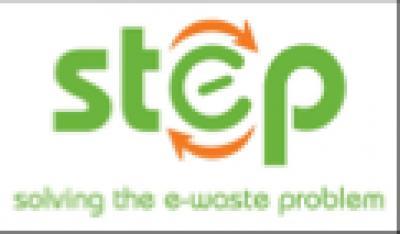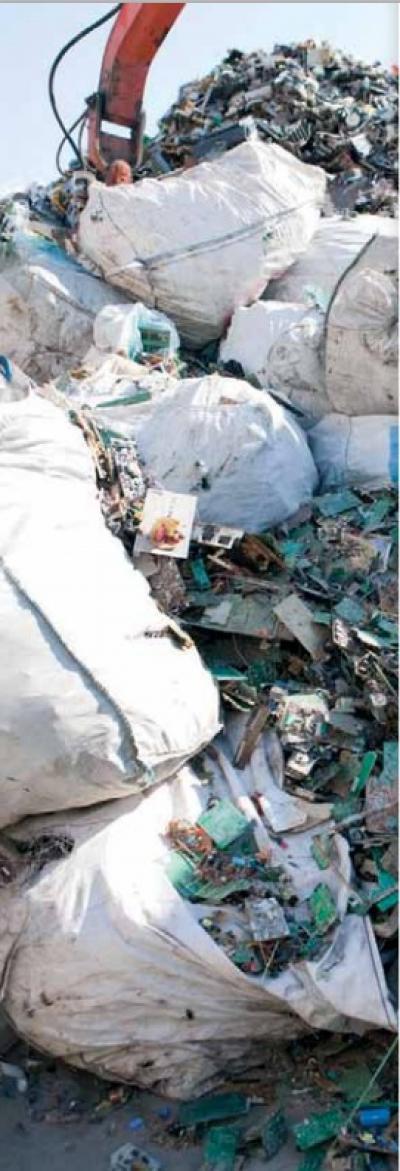Acute concerns about e-waste management in developing countries were highlighted in expert presentations at a recent E-waste Academy for Managers (EWAM) in El Salvador organized by UN University Institute for the Advanced Study of Sustainability (UNU-IAS) hosted Step (Solving the E-Waste Program) Initiative.
The week-long Academy ended April 4 was the second in a series inaugurated in Ghana in 2012. By sharing insights on "urban mining" and fostering international linkages and collaboration, the academies for e-waste managers, along with complementary events for e-waste-related scientists, are enabling local solutions to a growing global concern.
Though it receives far less foreign e-waste than Africa and Asia, Latin America and the Caribbean is a significant and growing destination for the industrialized world's discarded refrigerators, small home appliances, TVs, mobile phones, computers, monitors, e-toys and other products with a battery or electrical cord.
And the region's fast-growing middle class is buying more electronic and electrical equipment first-hand with rising purchasing power and living standard expectations. According to the World Bank, in the past decade the middle class in the region grew 50% and represents 32% of the population, for the first time in regional history surpassing the number of poor.

This is the Solving the E-waste Problem logo.
(Photo Credit: UN University)
UNU and StEP data shows per capita e-waste generation in the region's 30 countries averaged 7.5 kilos in 2013, led by the Bahamas with 19.1 kilos per capita. By 2017, regional per capita generation is expected to rise almost 19% to 8.9 kilos in 2017.
Only about one-third of the countries of South America, Latin America and the Caribbean have regulatory instruments related to e-waste (Brazil has the most, followed by Argentina, Colombia, Peru, Bolivia, Chile, Mexico and Costa Rica), though others are proposing or actively working on specific legislative bills.
The UNU and Step e-waste academies are valuable for researchers, government decision makers and recyclers as others in the broader Step community. Step experts provide experience and knowledge to participants who, in turn, share concerns and challenges in their efforts to address e-waste in a developing country context.
E-waste is one of the fastest-growing components of the global waste stream. The UNU-IAShosted Step Initiative recently released data in the first-ever global e-waste map showing that by 2017 the annual mountain of e-waste will be 65.4 million tonnes in all, one-third higher than 2012 levels.
Background: the Step E-waste Academy – Managers Edition
Organized by the UNU-hosted Solving the E-waste Problem (Step) Initiative, the pioneering E-waste Academies for policymakers and small and medium enterprises (EWAM) and scientists (EWAS) aim to foster and sustain multi-stakeholder partnerships and collaboration, examining the e-waste issue in its entirety, rather than through the lens of a specific discipline.
In addition to expert lectures and presentation on topics ranging from e-waste related policy and sociology issues to technology and economics, the week-long academy program includes group projects and site visits.
Participants include representatives from small and medium enterprises in developing countries - mostly recyclers and refurbishers - as well as key policymakers and government officials.
The Academy in El Salvador, was sponsored by EMPA/SECO, NVMP Foundation, US-EPA, Nokia, GeSI, HP, Dell, UNIDO and World Loop, convened:
- 21 participants from 10 countries of South America, Central America and the Caribbean (Argentina, Brazil, Colombia, the Dominican Republic, El Salvador, Guatemala, Jamaica, Peru, Trinidad and Uruguay)
- 3 participants from Africa (Burundi and South Africa)
- 14 experts from such institutions as the Massachusetts Institute of Technology and the US Environment Protection Agency, the World Resources Forum in Switzerland and precious metal recycler UMICORE in Belgium, and
- 7 facilitators from IT manufacturers (Dell, Hewlett Packard and Nokia), as well as the UN Industrial Development Organization (UNIDO).

Hosted by UN University, Step was founded by various UN organizations as a science-based initiative to create and foster partnerships between companies, academic institutions, and governmental and non-governmental organizations.
StEP membership is open to companies, governmental organizations, academic institutions, NGOs and international organizations that commit to proactively and constructively participating in StEP's work.
See also: http://bit.ly/1kKESbW.
(Photo Credit: UN University / Step)
Source: Acute concern for health, environment highlighted at UN-backed E-waste Academy in Latin America